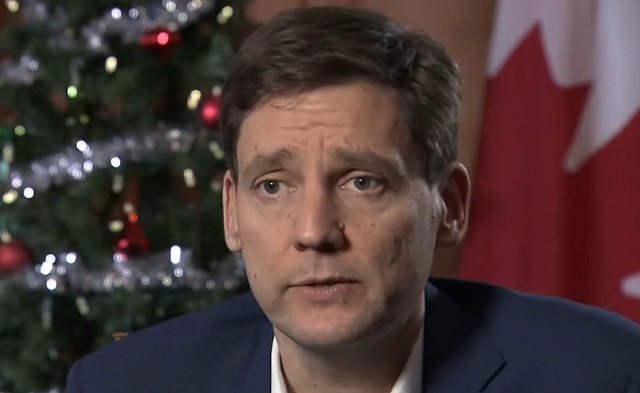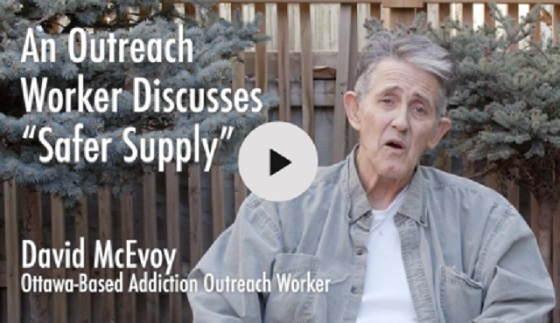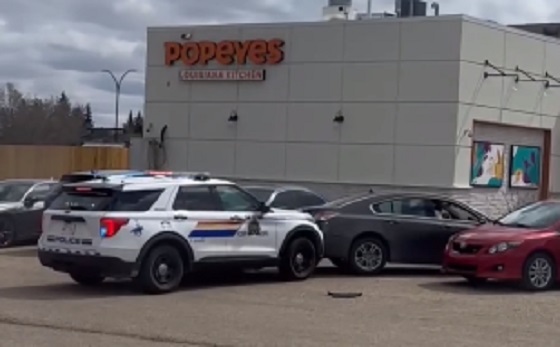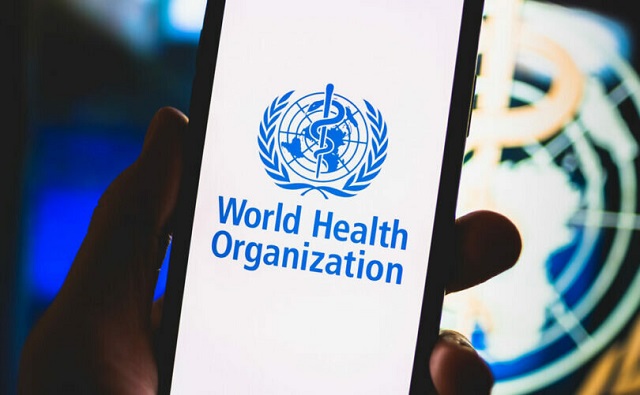Health
Update… Improved And Expanded Health Care Coming To Sylvan Lake… With Full Announcements
By Sheldon Spackman
It’s been six years in the making. Finally, improved and expanded health care for Sylvan Lake. The province has announced it will create an “Advanced Ambulatory Care Clinic” at the Sylvan Lake Community Health Centre.
The long-awaited announcement was made at the Sylvan Lake Municipal Government Building Monday afternoon with numerous dignitaries on hand to celebrate. Among them, Alberta’s Health Minister Sarah Hoffman who says the government will provide $2 Million for start-up costs and renovations to the current health facility. She says work will begin this Spring, with the enhanced facility to open early next year. Hoffman says these enhanced health care services will allow the Advanced Ambulatory Care Clinic at the Sylvan Lake Community Health Centre to offer treatment for urgent care and injuries like stitches and basic fractures up to 16 hours a day / seven days a week. Hoffman says “It’s actually really good timing that when he have a bit of a downturn in the economy, you can stretch your capital money a little bit further and we want to get people working as much as possible, so this is a really good fit time-wise.”
Sylvan Lake Mayor Sean McIntyre says he’s very proud and extremely happy to see this project become a reality, both for the town and surrounding region. He says “It’s been a long road, six years that we’ve been advocating very strongly and persistently for this increase in services and now for that need to be acknowledged and met by the Health Ministry and by Alberta Health Services, we have a lot to celebrate in Sylvan Lake today.” McIntyre also points out how incredible the community has been in supporting this initiative, saying “They’ve been fundraising, they’ve been advocating, writing letters, they’ve been both active and patient with our advocacy efforts and this celebration today really belongs to them!”
Former Sylvan Lake Mayor and current Chair of the Sylvan Lake Urgent Care Committee Susan Samson says it’s almost hard not to cry tears of joy, adding “These services are desperately needed. We’re talking about medical services for non-life threatening injuries and our deal was we were always plugging up the Emergency Rooms at the Red Deer Regional Hospital and at other nearby Emergency Rooms with things that should be treated at home. Things like your child with an ear ache or broken bone or just the simple things. We need to treat them at home and take the pressure off the system and that’s what we’ve got today.” Samson speculates the hours of the new services would likely be roughly 8:00 am to 10:00 pm seven days a week but that’s yet to be decided.
Samson says the first part of the renovations will involve relocating physiotherapy at the Sylvan Lake Community Health Centre, as they have a large, open space that will be easy to work in. Samson adds the community helped raise $197,000 for this project over the past six years. She says it will be turned over to AHS to purchase equipment and be added to the $2 Million the Province is providing.
(Photo by Lindsay Wiebe)
Addictions
British Columbia to re-criminalize hard drug use in public after massive policy failure

From LifeSiteNews
British Columbia premier David Eby announced that his province plans to re-criminalize hard drug use in public spaces after its decriminalization last year led to widespread social disorder.
British Columbia is asking the Trudeau government to roll back its drug decriminalization program after increased violence and continued overdoses.
On April 26, New Democratic Party (NDP) premier of British Columbia David Eby announced that he is working with Prime Minster Justin Trudeau’s federal government to re-criminalize drug use in public spaces, including inside hospitals, on transit, and in parks. British Columbia, under permission from the Trudeau government, had decriminalized such behavior in 2023.
“Keeping people safe is our highest priority,” Eby explained in a press release. “While we are caring and compassionate for those struggling with addiction, we do not accept street disorder that makes communities feel unsafe.”
“We’re taking action to make sure police have the tools they need to ensure safe and comfortable communities for everyone as we expand treatment options so people can stay alive and get better,” he continued.
Under the new regulations, police would be given the power to prevent drug use in all public places, including hospitals, restaurants, transit, parks and beaches.
However, drug use would remain legal at “a private residence or place where someone is legally sheltering, or at overdose prevention sites and drug checking locations.”
Eby’s concerns over drug use were echoed by Minister of Public Safety and Solicitor General Mike Farnworth who said, “Our communities are facing big challenges. People are dying from deadly street drugs, and we see the issues with public use and disorder on our streets.”
“As we continue to go after the gangs and organized criminals who are making and trafficking toxic drugs, we’re taking action now to make it illegal to use drugs in public spaces, and to expand access to treatment to help people who need it most,” he promised.
Beginning in early 2023, Trudeau’s federal policy, in effect, decriminalized hard drugs on a trial-run basis in British Columbia.
Under the policy, the federal government began allowing people within the province to possess up to 2.5 grams of hard drugs without criminal penalty, but selling drugs remained a crime.
While British Columbia has not yet indicated it plans to re-criminalize possession, its decision to clamp down on public drug use presents a major departure from its previous tactics of continually liberalizing its attitude toward narcotic use.
Since being implemented, the province’s drug policy has been widely criticized, especially after it was found that the province broke three different drug-related overdose records in the first month the new law was in effect.
The effects of decriminalizing hard drugs in various parts of Canada has been exposed in Aaron Gunn’s recent documentary, Canada is Dying, and in U.K. Telegraph journalist Steven Edginton’s mini-documentary, Canada’s Woke Nightmare: A Warning to the West.
Gunn says he documents the “general societal chaos and explosion of drug use in every major Canadian city.”
“Overdose deaths are up 1,000 percent in the last 10 years,” he said in his film, adding that “[e]very day in Vancouver four people are randomly attacked.”
Addictions
Must Watch: Addiction worker estimates 90% of “safer supply” drugs resold on black market

“It’s just… it’s created more addicts,” says David McEvoy, an Ottawa-based outreach worker who specializes in overdose prevention.
|
|
“Safer supply” refers to the practice of prescribing free recreational drugs as an alternative to potentially-tainted street substances. While advocates claim that this practice saves lives, David McEvoy, an Ottawa-based addiction outreach worker, says that approximately 90% of clients are reselling their taxpayer-funded drugs on the street, leading to new addictions and relapses.
His testimony is consistent with the testimony of dozens of addiction experts, former drug users, and youth. You can read a summary of his interview in the National Post here.
Our content is always free – but if you want to help us commission more high-quality journalism, consider getting a voluntary paid subscription.
-

 Education20 hours ago
Education20 hours agoSupport a young reader through the Tim Hortons Smile Cookie campaign
-

 Alberta2 days ago
Alberta2 days agoAlberta’s vision for passenger rail
-

 John Stossel2 days ago
John Stossel2 days agoWhy Biden’s Just Wrong: NO ONE “Knows How to Make Government Work.”
-

 Education2 days ago
Education2 days agoRebels earn Jim Donlevy Memorial Trophy as WHL Scholastic Team of the Year
-

 RCMP2 days ago
RCMP2 days agoRed Deer RCMP arrest two individuals following ramming of police vehicle
-

 Alberta2 days ago
Alberta2 days agoThree Calgary massage parlours linked to human trafficking investigation
-

 COVID-192 days ago
COVID-192 days agoStates move to oppose WHO’s ‘pandemic treaty,’ assert states’ rights
-

 Business21 hours ago
Business21 hours agoWEF panelist suggests COVID response accustomed people to the idea of CBDCs






